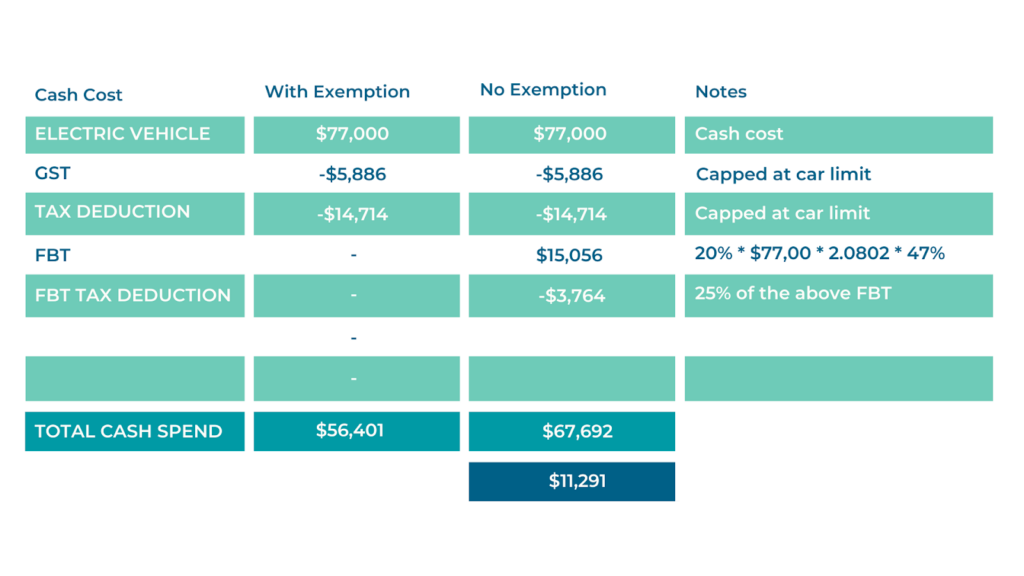Tax Planning 2023: How to Keep More of Your Money with Legal Tax Strategies

What is Tax Planning?
Taking place annually from March to June, tax planning is an exhilarating period for accountants. This phase, leading up to the end of the financial year, is when tax planning primarily happens.
Some of these strategies are time-sensitive, which means failure to discuss tax planning tactics in due course could result in lost opportunities for potential tax savings. In the realm of tax planning, the phrase “time is money” holds very true.
While the tax planning process typically occurs just before the financial year-end, the successful implementation of these strategies is absolutely crucial. Merely acquiring knowledge about these strategies is not enough; for effective use, these strategies must be implemented before the financial year ends.
Undergoing this process can be immensely advantageous for businesses and individuals alike, as it could result in significant amounts of money being saved and consequently, more money in your pocket. This process is one of the key ways to learn how to save in tax.
Consider the example below:
- Tax payable before tax planning: $75,000
- Apply strategies (Reduce tax): $50,000
- Tax payable after strategies: $50,000
Value of tax planning: $25,000
This example clearly demonstrates the financial benefits of tax planning. If you’re curious about how to save in tax, tax planning is a highly effective approach.
Take Action Before 30 June
Act Before 30 June We encourage you to converse with your accountant and enquire if they offer this service. If they don’t, you might want to consider switching to an accountant who specialises in tax planning.
Starting the process sooner rather than later is crucial because it involves work in determining the outcome and implementing the strategies. Do not wait until mid or late June to realise that you need to make decisions and undergo the tax planning process.
Make it a priority to take action. It’s one of the most effective ways to save on tax.

Some time-critical tax saving strategies
Write Off Bad Debts
The rule of thumb here is that you must decide by 30 June to write off a debt to claim it as an expense. If you have a debt from a year ago that has not yet been written off, ensure to do so before 30 June to claim the deduction in the current financial year.
Cash Up Your Super Fund
Contributing towards your super is not only a wealth and retirement planning strategy but also a means to save on tax. As the financial year-end approaches, we guide our clients on the remaining amount they can contribute to their super fund. This cap, set by the ATO in 2018, is currently at $27,500 (previously $25,000). This figure represents the amount that can be contributed to the super fund and claimed as a tax reduction.
Since 2018, the ATO has permitted the carry-forward of the unutilised portion of the super contribution cap of $27,500 to the following financial year. As a business owner who may have overlooked super contributions in the past 2-3 years, you might have a significant cap remaining. If you’ve had a profitable year, you can utilise this opportunity by contributing a larger sum of money to your super fund just before the end of the financial year and claim it as a tax reduction, thereby maximising your tax savings.
EV and FBT Exemption
There are now options for tax strategies for EV buyers. With the government promoting the adoption of electric vehicles, your business can benefit by availing of the FBT Exemption for electric cars. If you purchase an electric vehicle before the end of this financial year, you can claim it as a tax reduction for your business.
Suppose your logbook shows 50% business and 50% private use; in this case, you can only claim 50% of an ordinary car. However, with electric vehicles, you can claim 100% of the cost, irrespective of the percentage split. This benefit can be especially advantageous for professionals who have minimal business-related travel and usually can only claim a smaller percentage with ordinary cars.
Comparing the cost to the business against the standard FBT statutory method treatment

Small Business Investment Technology Boost
Claim extra 20% on expenses that support digital operations and digitising operations
- Digital Enabling Items
Eg: cost to set up a digital payment system, any subscriptions that help digitisation etc - Digital Media and Marketing
Audio and Visual content that can be created, accessed, stored or viewed on digital devices - E-commerce
Supporting digitally ordered or platform-enabled online transactions.
There are different categories to consider.
The concept here is that you can claim an additional 20% as a tax deduction.
For example, if you have spent $100,000 (which is currently the limit), you will be able to claim a deduction of $120,000.
* This measure will apply to expenditures incurred in the period commencing from 7:30 pm AEDT 29 March 2022 until 30 June 2024. Please note: These measures are not yet law.
Small Business Skills and Training Boost
Claim an additional 20% of expenditure that is incurred for the provision of external training courses to their employees.
Eligibility
- Small Business
- Employee is in Australia
- Course is provided by a registered provider in Australia
Make sure that not only does your entity qualify but also that the money you’re spending it on.
Suppose your bookkeeping has been done for this financial year, and you’ve reconciled the training. In that case, you should talk with your accountant to ensure they have been accurately recorded and accounted for.
* This measure will apply to expenditures incurred in the period commencing from 7:30 pm AEDT 29 March 2022 until 30 June 2024. Please note: These measures are not yet law.
Changes in Trust Distributions - s100A
- You and your Spouse are generally ok
Paid into a joint account, spent on standard family stuff - Adult Children
Repaying or gifting not allowed – same with retaining cash or working capital - Your parents/in-laws
Repaying or gifting not allowed – same with retaining cash for working capital
The intent of section 100A is that the economic benefit of the distribution should be enjoyed by the person receiving it rather than serving as an incentive to reduce the overall tax the family would pay.
What the ATO tries to encourage is if you’re distributing to a family member, the money should go to them, and they should be the one who is using that money for economic benefits.
Suppose you’re a family business distributing funds to your spouse. In that case, that’s generally acceptable because, for example, transferring the money to a joint account and spending all the income together is permissible.
If you’re distributing money to adult children, it’s the same whether the money goes directly to them or if they’re staying with you and you provide them with money to support their daily living expenses.
If you’re a parent who provides financial support by giving money directly, you can distribute that money through your business instead.
If the idea of the whole distribution was just to reduce your tax, then that’s going to be a no. You have to be very careful on what the reason is, and what sort of arrangement you have with your children as well.
Allocation of Professional Firm Profits PC 2021/4
PCG 2021/4 is about arrangements where:
- Taxpayers redirect their income from a business or activity to an associated entity/individual
- That income includes income from their professional services – personal exertion of an individual
- The outcome is that they significantly reduce their tax liability
The affected industries are service-based businesses that sell knowledge or expertise. This is not relevant for a pool shop where you’re selling creepy crawlies and different things for pools.
It’s more for professional service-based firms. If you use a trust or a company to run your service-based business, they want to contribute as much money as they can in the expert’s name.
So let’s say Ben Walker runs Inspire; the more profit that ends up in his name and is taxed at a higher rate, the less risk the ATO deems on potentially breaking these rules.
Get Cashed Up


